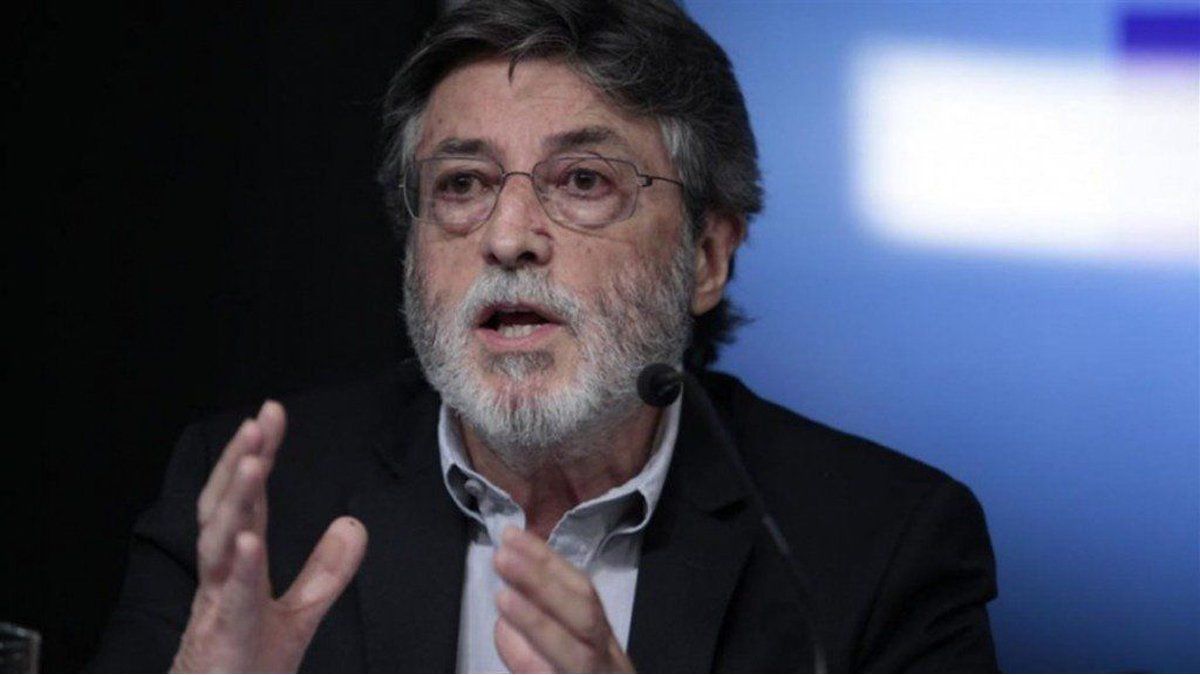The complexity of the explanations sometimes made it necessary to review each of the amounts that had been entered in the reports. “The flow between companies does not generate changes in the patrimony of an economic group”, denied one of the axes of the case. “A conversion of a debt into equity does not affect the equity of an economic group,” he reiterated in reference to the actions that these loans became, which had always been pointed out as a way of insolventing Oil, but which now enters into crisis with this testimony.
Loans
Montanini said that his task was to “monitor the amounts and credits with intercompany loans and the debt that existed for the Fuel Transfer Tax (ITC).” “One of the complex things is the fungibility of assets and liabilities. It is difficult to make an association, ”he stated regarding one of those who have been pillars of the accusation. So the observers had compared stocks and not flows. This was relevant from the point of view that a specific origin and destination could not be assigned to the funds: it was “impossible” to point out that the liquidity that Oil obtained by financing ITC in payment plans was the same money that was applied to loans to related companies. In some way he ratified what De Sousa himself had declared in his investigation at the trial. Issues that could not be assimilated were being compared and a correlation had been forced between ITC and loans that did not adjust to the actual movement of funds or financial statements.
The witness noted that this required a much broader survey. It was a paradox: the defense of Cristóbal López and Fabián De Sousa had requested -during the prosecutor’s instruction Gerard pollicita- that a complete accounting and economic expertise be made on the oil company. The test measure that would have been useful yesterday was never made. It is one of the great unknowns that arise in the face of this complexity, why if there are underlying tax matters, there is talk of stocks, flows, economic variables, financial and accounting statements, this case was not processed in the economic criminal jurisdiction specialized in these matters ? Another suggestive element: the information that served as the basis was only that provided by AFIP. The measures proposed by Oil were rejected by the tandem Stand-Ercolini.
Montanini assured that Oil had three sources of financing: its activities, that of related companies and indirectly the State, despite the fact that real money never entered except through the financing plans granted. This indicated that there were no debts in the financial system Therefore, it did not agree with the arguments of the company about the reasons for its financial distress, already in 2016 and 2017. In parallel, the defenses sought to make it clear that when it was stated that the AFIP plans were not paid, it was because the The oil company had gone bankrupt and the law prevented them from paying them. There were frictions. The prosecution was interested in knowing if any of these credits could be assimilated to a distribution of dividends, something that was forbidden to those who obtained a particular AFIP plan. “Conceptually not,” Montanini replied when describing which accounting rules are exhaustive to distinguish them.
“We did not detect any substantial element that made us doubt the concept of a going concern,” he stressed regarding the concept that they sought to take care of Oil’s continuity because “a company that does not continue cannot pay its debts.”
“Adding these three companies (for Oil Combustibles, Oil M&S and Inversora M&S) negative net worth is not prudent if you do not have that of other companies,” he indicated due to the consolidation of the information that was required for a result adjusted to the real . Justice had only focused on three. The specialist recommended otherwise. The witness thus swept away the initial report of Jorge Schiaffini of the AFIP that – doubtful and nervous – ended up admitting that he or his equipment did not make.
Interested
Yesterday’s hearing had a parallel chapter. A request for “interested lawyers” to attend the virtual hearings was filed with the Federal Oral Court No. 3. They were not simply public. Those who asked to enter under that category were Juan José Ávila and Eliseo Devoto. The first is a lawyer for Alberto Abad, the former head of the AFIP and the second the former director of Legal Affairs of the collecting body. Devoto is accused in the case of Judge María Servini. The matter left doubts floating in the air about the motivations. The prosecution immediately asked that he testify as a witness. If he attends the hearings, he cannot be summoned later. But it also turns out that you cannot testify under oath if you can incriminate yourself in the other cause. Additionally, after statements by AFIP witnesses before TOF 3 detailed by Ámbito, prosecutor Guillermo Marijuan requested the criminal indictment of Néstor Sosa, in charge of the Audit and accused of being the person allegedly responsible for falsifying the audits in the Oil case. Devoto, whom Ávila now attends like Abad, wanted to make a spontaneous presentation as a lawyer before Servini. They sent him back because his registration was not up to date.
–

